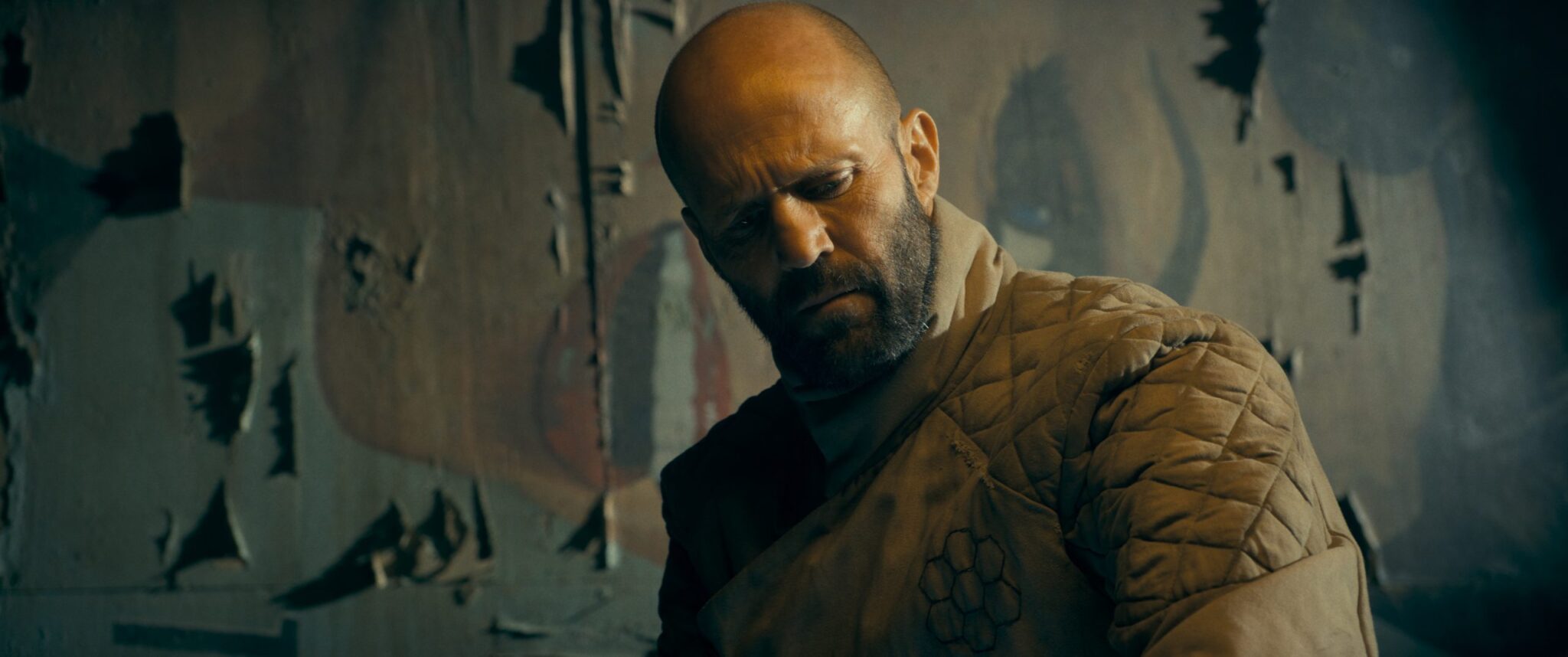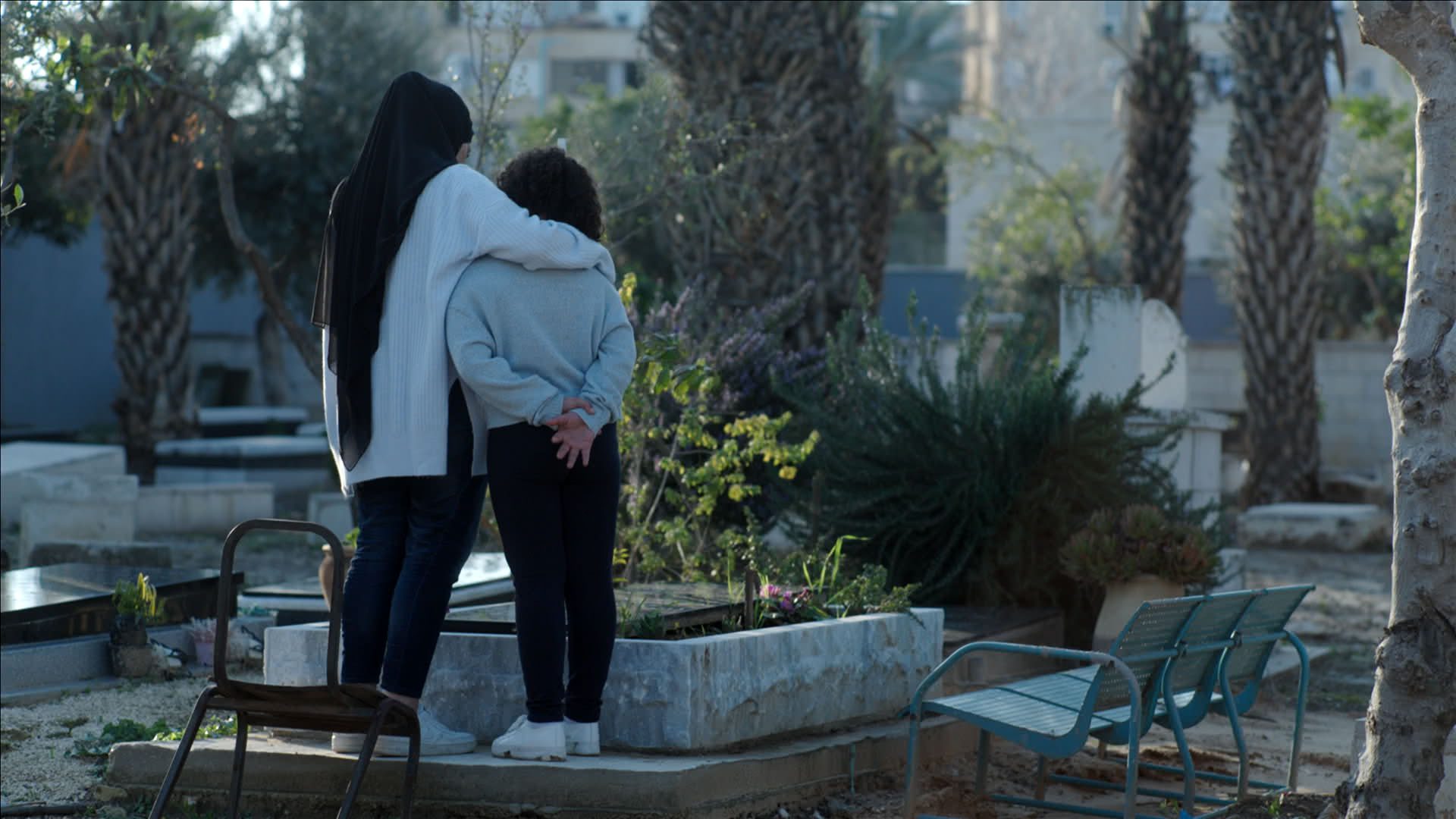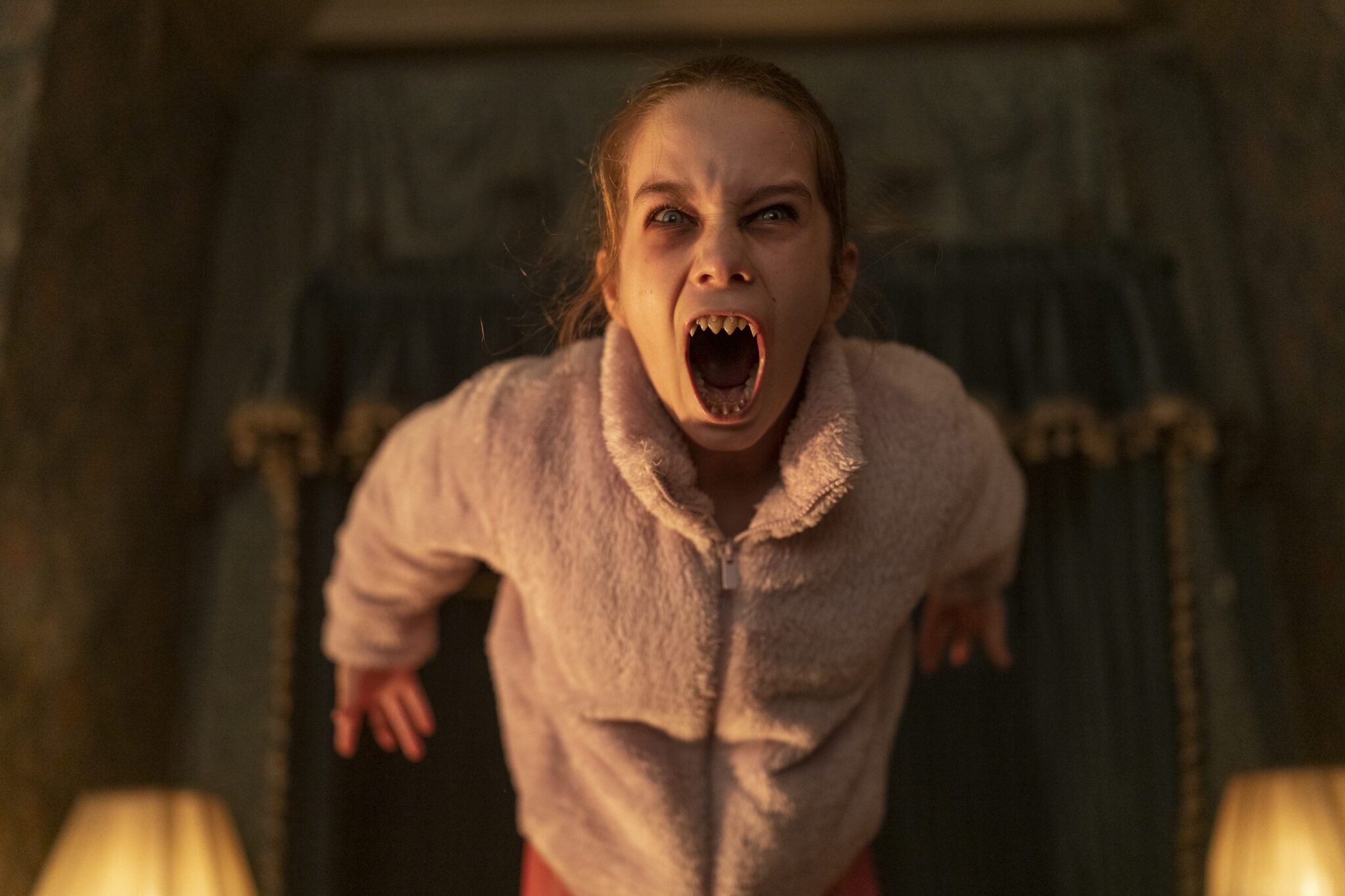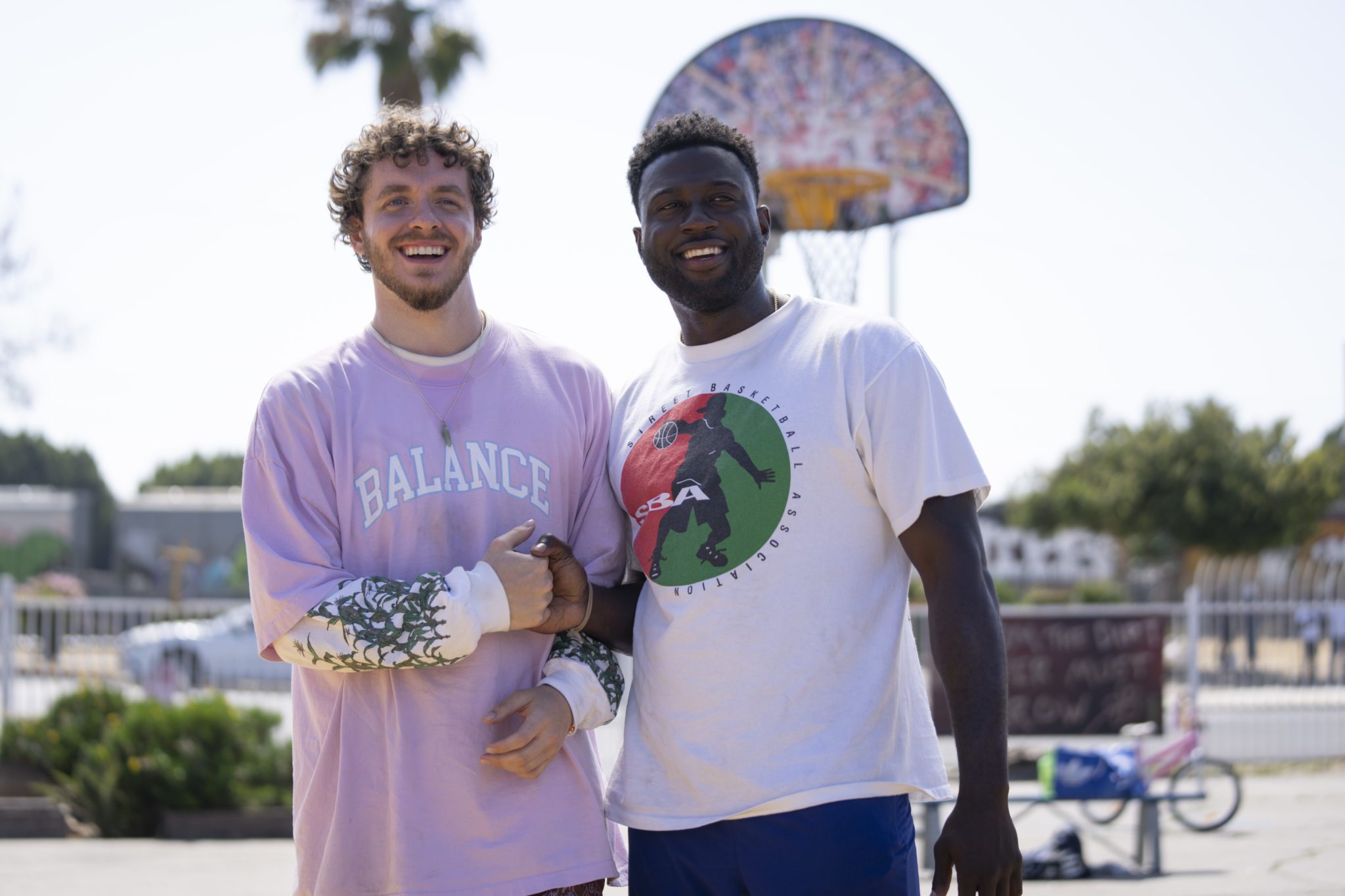
When reimagining an old classic, it’s never guaranteed to be a slam dunk.
Directed by Calmatic, White Men Can’t Jump tells the story of Jeremy (Jack Harlow), a former NCAA star who lost his path to stardom due to injuries. Hustling games in the local community centre, Jeremy meets Kamal (Sinqua Walls), a former promising baller whose future in the sport was derailed. At first, Kamal doesn’t take Jeremy’s game seriously until he realizes that he’s far better than expected. Together, the two begin to con ballers out of their cash in an attempt to earn entry into a tournament that could turn both their fortunes around.
Based upon the beloved 1992 film starring Wesley Snipes and Woody Harrelson, this version of White Men Can’t Jump has some fairly big sneakers to fill. However, Walls believes that their vision for the film stands up on its own due to its authenticity.
“I think the best part is the way that we shot L.A., the intricacies of that,” echoes Walls. “Because ’92 did something really great with Venice and streetball and telling that authentic story. But one of the special things, genuinely, is the fact that [Calmatic] can shoot L.A. better than anybody else. And he knew spaces for us to unpack. So, that’s what really updates it for now, is because you see parts of L.A. that you didn’t see in the original. But you see the people and the culture and the color and the vibrance. Like he said, the essence of, if you grew up in L.A., like, you know somebody from Watts and how they really move. Compton and how they really move, Gardena and how they really move. Crenshaw. All those places. And I think that really is different is because this time around, the city is its own character that lives in the story”.
Rooted in the heart of Los Angeles, the setting is an essential part of what makes Can’t Jump such a special project. Having grown up in the area, Calmatic wanted to ensure that he brought the most authentic flavour of the community to life onscreen.
“I’m born and raised in L.A., you know what I’m saying?,” he begins. Like, I love L.A. more than a lot of stuff,” beams Calmatic. “I feel like, especially in film, Hollywood, you see L.A. presented in so many different ways. But being someone who lives here, I’m like, there’s a whole L.A. that the world hasn’t seen yet. It’s the L.A. I grew up in. It’s also a very influential part of L.A. that hasn’t been seen yet. Just the way we walk, the way we talk, the way we play basketball. You know, like I always say, like, James Harden, like, he went to Audubon Junior High. That’s, like, a very specific junior high. And if you see the way he play and the way he be doin’ his little weird step backs that look like they might be travel, that’s some Audubon [stuff]. You know what I’m saying?… So, I think for me, it’s really just about showing the world my L.A. and how I see it. And hopefully, you know, we can continue to keep influencing.”
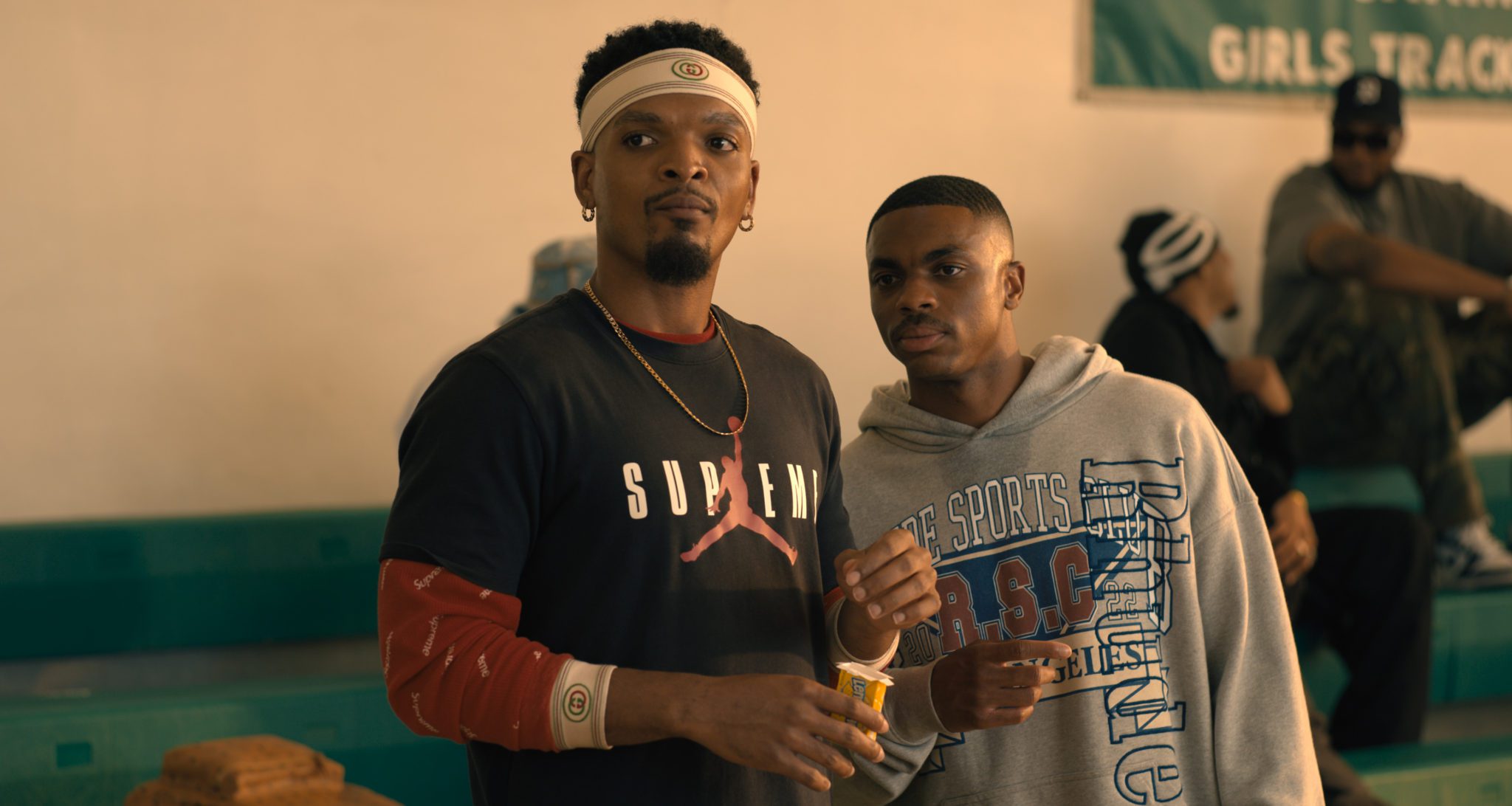
Part of this authenticity stems from the film’s soundtrack. For Calmatic, the best way to bring LA to life is to hear the sounds of the city. As a result, he sought to find artists that best represented the true soul of Los Angeles.
“Man, L.A., you know what I’m sayin’? I feel like, you know, there’s so many artists in L.A. that don’t get the opportunity to be in films,” he says emphatically. “And I feel like, if we’re gonna be specific about these locations and these characters and then, these people, then we gotta be specific about the sound. And so, you know, there’s artists like — I mean, Lil Russell was kinda doing his thing right now, but Lil Russell being a West Coast artist, we had to put him in the film. This is his first placement. I feel like he’s gonna be a super huge artist in the future. But even down to rappers like Epic Must Die and the Baby Stone Gorillas, these are just super local L.A. acts that live in these neighborhoods that we portray. So, I felt like, you know, it was only right to have that music.”
Of course, with any remake comes responsibility to the fans. When a project has become so beloved, there will always be scenes that people love and expect to be a part of the new incarnation. However, Calmatic took this as an opportunity to do more than simply retread old material. For him, it was a chance to create.
“I’ve got a hip-hop background,” he begins. “And so, I don’t like to say we re-made a movie. I feel like we sampled a movie, right?… We chopped it up. We changed the pitch; you know what I’m sayin’? We reversed it a little bit. And then we put a whole new bassline, a whole new set of drums on it to make it feel current. And so, I feel like that’s what this is, right? This is, like, a dope flip, you know what I mean? So, I think, you know, they say things that are classic are things that are new that feel familiar. I think we had a bunch of new elements, new characters, new storyline. But we had to have some of those elements, some of those locations that are familiar to everyone, you know, associates with the original film. So, Venice Beach, we had to keep Venice Beach in there, you know what I’m sayin’? We had to do this in Watts, you know what I’m sayin’? That court is iconic… And to be honest, it just so happens that these locations look really good on camera, too, right? So, like, there’s a reason why they chose that court, you know what I’m sayin’?… It’s fun to pay homage. It’s just to paint a picture in the same locations. So, that was a dream come true.”
For Harlow, this experience was an entirely new for him. As his first time working on a film project, he was thrilled to have a team as talented as this one to work alongside.
“It was cool and a learning experience,” says Harlow. “I’m thankful that I joined a group of people that were so humble and willing to let me learn and be patient with me and be willing to teach. You know, I feel like I arrived into an egoless environment. And I was the least experienced person and everyone just kinda let me shine and try things and gave me the room to give my opinion. I gotta give a big shoutout to Cal for that. Like, if I felt strongly about something, it didn’t mean that it was gonna go that way, but Cal would hear me out and vice versa, of course. So, I was all for the lead vision, but I just appreciated that I could come into my first one and people actually cared what I thought. So, I just wanna give a big shoutout to everybody I’m sitting with here and everyone that was involved in the film, for making my first one such a seamless experience.”
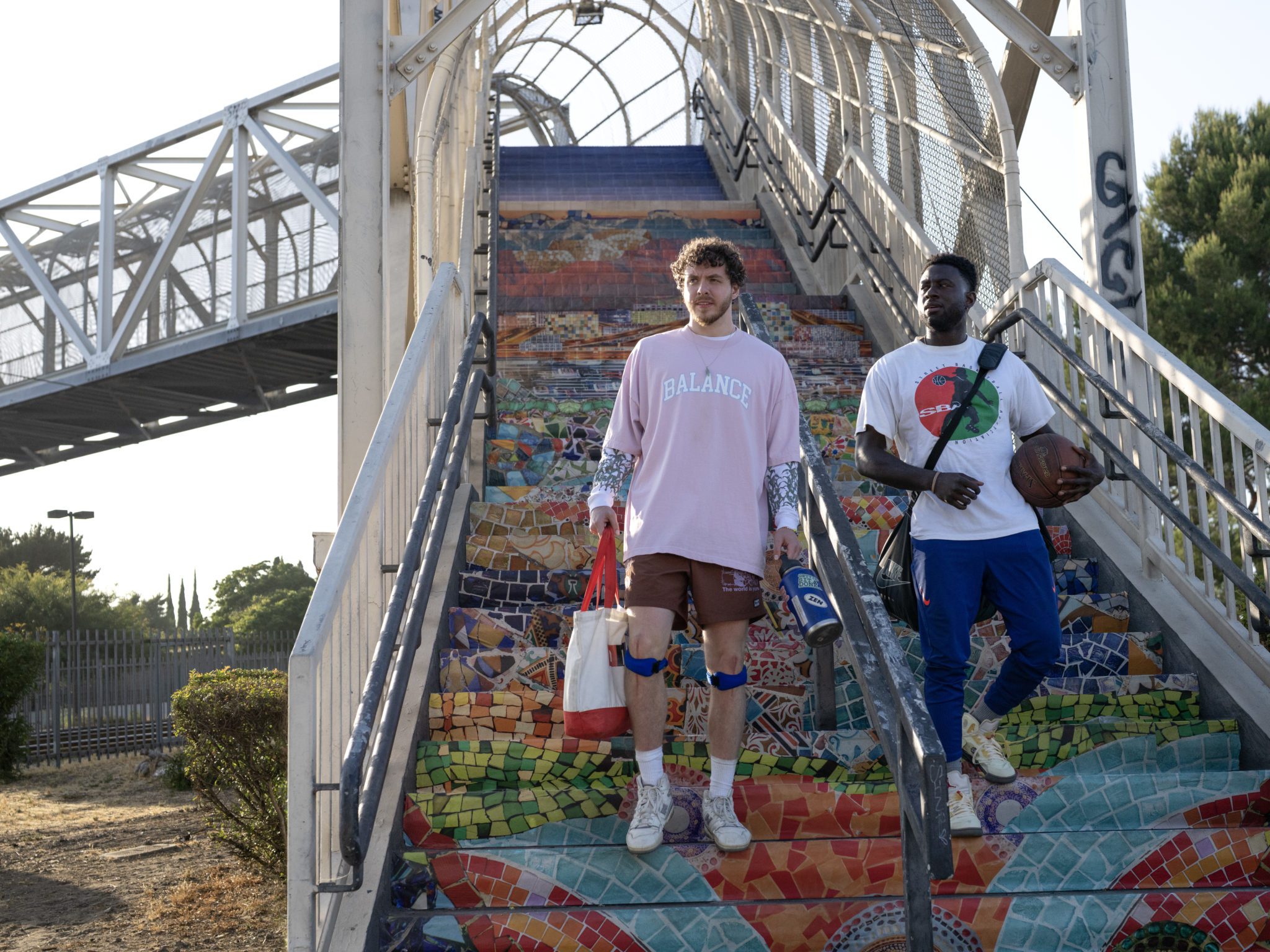
However, one standout amongst the cast remains the late Lance Reddick. For the entire cast, working with Reddick proved to be a special experience as he exhibited both professionalism and grace.
“I think, when his name came up as an option for Benji, it was like, duh. We gotta go with Lance. We gotta work with that guy. And you know, as soon as we made it official, he came in. We had meetings. He did tons of research on his character and what illness he had. And, you know, he even went to go meet with doctors and he actually interviewed someone that had that condition. And so, when he came to set, he was super locked in. And it was one of those things where, as a director, when I’m watching actors, perform, I’m always thinking about, okay, how can we do that different? What’s going on? But after every take, you know, I would go in there and I would just be like, “That was perfect.” Like, you did it. That was it. Like, that’s exactly what this character needed at that moment. I know actors hate to hear this, but I was like, “Let’s do it again and let’s try something different,” you know what I’m saying? And he would do something different, but it was equally as perfect as the first one. And so, I think, you know, I quickly realized, like, he was just one of the best actors that I’ve ever worked with. And you know, it’s such a shame that he’s not here with us. But I think we all, just his presence alone left an imprint, a great impression on us.”
“He was super generous,” adds Walls. “We had a couple times, especially in the hospital scenes. I remember, he had to eat some Jell-O or something. And he was supposed to be in the chair in his moment, going through his illness. And I think he accidentally hit the wrong Jell-O. And I remember him, like, just breaking character. He was like, “My bad, man.” He’s like, “Let’s just go ahead and take that back.” And it was so funny ’cause he laughed, too. And then he, like, went right back into character. And I was, like, “Well, that’s a pro right there.” Like, that’s legacy. He was really well trained. He was really well studied. But to see him break character, laugh, and then go right back into it was just a testament to his personality.”
“Yeah, like everybody said, I had one or two days with Lance,” Harlow remembers. “But I was really taken by his presence and the energy he had playing Benji just felt so real. I mean, when I think back, it’s hard for me to separate in between takes and what was going on on-camera. Like, he just had a warmth that the character he was portraying had. And kind as hell. I don’t know, simple as that. Kind as hell, that’s how I’ll remember him.”
But one of the most exciting aspects of the new film is its emphasis on mental health issues. Unlike the original film, this reimagining of White Men Can’t Jump goes out of its way to speak to the importance of seeking help for our emotional struggles.
“I think it was really important because it’s current to today. I think we’re seeing so many different things that people are afflicted with, and they’re struggling with, and they’re trying to overcome. And I think what the ’92 film did was really be elemental of what was going on in the culture. And I think now our culture is progressed to a place where mental health is so important. And people are wanting to have that conversation. They’re wanting to have a conversation of “How can I get help?” Or “How can I help?” I think holding people accountable. I think (co-star) Teyana (Taylor) said something really great in terms of what love is, and love is being present but also, holding someone accountable. And I think getting that help as well. And that’s what Jeremy did for Kamal, and when he identified something. We have this line in the film where he says, “Basketball is your therapy.” And I know so many people where they don’t know their thing, which can be their therapeutic tool for growth and ability to have peace. And so, I think it was really important to infuse that… I think you see as people get more comfortable with their own mental journey, they’re allowed to open themselves up and be open to so many other paths of their journey with people.”
White Men Can’t Jump is available on Disney+ on Friday, May 19th, 2023.

